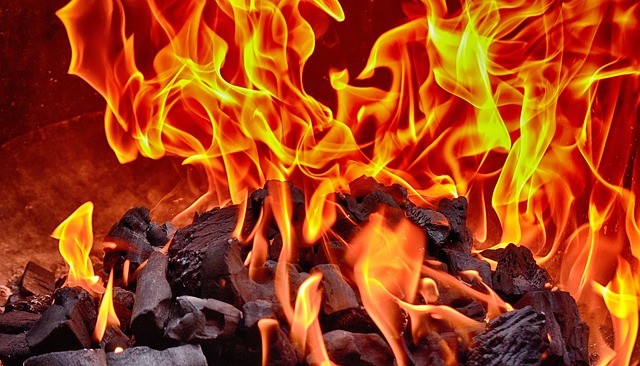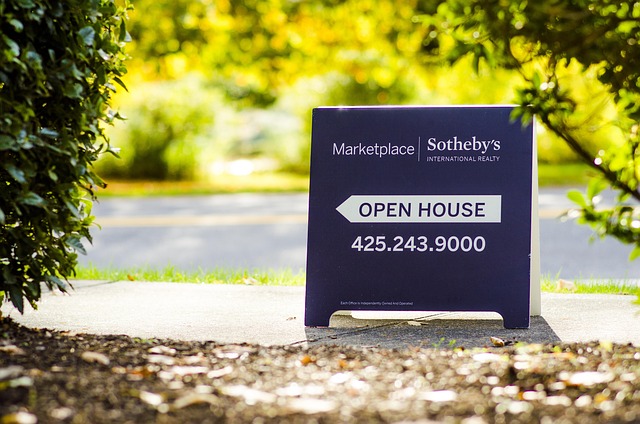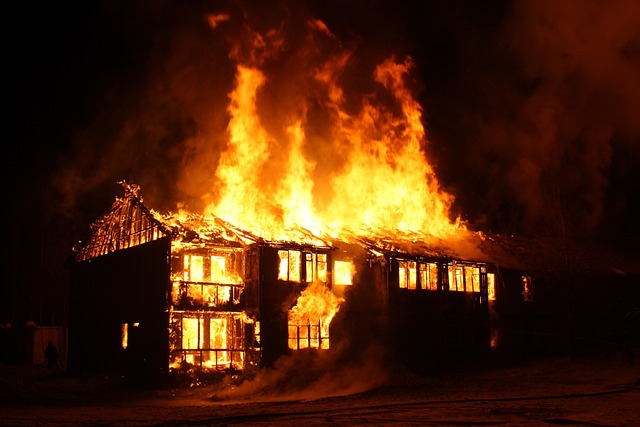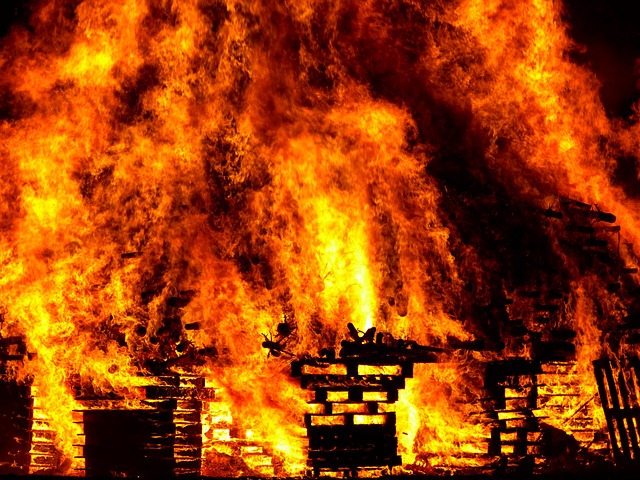Houston's real estate market offers unique opportunities through rehabilitating fire-damaged properties, despite initial challenges. These homes present discounted prices and attractive profit margins after renovation. Local regulations and specialized legal knowledge are crucial for navigating transactions. Strategic buyers can assess viability by evaluating location, conducting thorough inspections, understanding reconstruction codes, and examining historical recovery data. Building connections within the local community and leveraging reliable resources provide insights into investment opportunities. Successful case studies demonstrate the profitability of revitalizing fire-damaged properties while rejuvenating neighborhoods in Houston's dynamic market.
Houston’s real estate market presents unique opportunities, especially when considering post-fire properties. This article serves as a comprehensive guide for investors navigating this niche sector. From understanding the local market dynamics to legal considerations and evaluating ROI, we explore essential strategies.
Learn about the challenges and potential gains of purchasing fire-damaged homes in Houston, and discover how successful investors revitalized these properties. Additionally, we highlight resources and support networks designed to aid real estate investors in making informed decisions, including tips on when and how to sell a fire-damaged house in Houston.
- Understanding Houston's Real Estate Market: A Beginner's Guide for Investors
- The Challenges and Opportunities of Investing in Fire-Damaged Properties in Houston
- Legal Considerations: Buying and Selling Fire-Damaged Homes in Texas
- Strategies for Evaluating the Potential Return on Investment (ROI) in Post-Fire Real Estate
- Finding Reliable Resources and Support Networks for Houston Real Estate Investors
- Case Studies: Successful Stories of Investing in and Revitalizing Fire-Damaged Houses in Houston
Understanding Houston's Real Estate Market: A Beginner's Guide for Investors

Houston’s real estate market is vibrant and diverse, attracting investors from around the globe. For beginners, understanding this dynamic landscape is key to success. The city boasts a robust economy, driven by industries like energy, healthcare, and aerospace, which positively influences property values. Houston’s population growth has also contributed to rising demand for housing, creating a favorable environment for real estate investment.
One aspect investors should note is the potential for profit in rehabilitating properties, even those damaged by fire. While it may seem daunting, purchasing a fire-damaged house in Houston can be a lucrative opportunity. With careful assessment and renovation, these properties can be transformed into desirable residences or rentable spaces. Local regulations regarding repairs and rebuilding offer guidance for investors looking to navigate the process effectively.
The Challenges and Opportunities of Investing in Fire-Damaged Properties in Houston
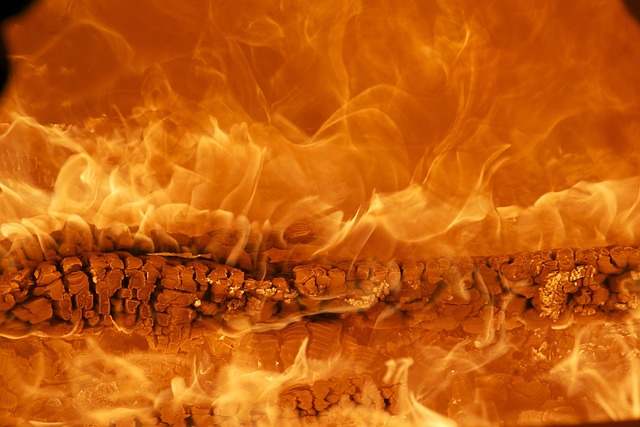
Investing in fire-damaged properties in Houston presents both unique challenges and attractive opportunities for real estate investors. One of the primary hurdles is navigating the complex process of repairing and rehabilitating these properties, which often require significant financial outlay and time. Fire damage can leave homes in need of extensive renovation, from structural repairs to complete rebuilding of affected areas. Additionally, there’s the challenge of finding qualified contractors and managing restoration costs, ensuring the work complies with local building codes.
However, for investors willing to take on these tasks, fire-damaged properties offer substantial potential. These homes often sit at a discounted price due to their condition, making them appealing buys in the competitive Houston real estate market. Moreover, successful renovation and resale can yield significant profits, as many buyers are drawn to the idea of purchasing and restoring a home. This trend is particularly notable in areas where new construction is scarce, allowing investors to contribute to the local housing landscape while capitalizing on the real estate market’s cyclical nature.
Legal Considerations: Buying and Selling Fire-Damaged Homes in Texas
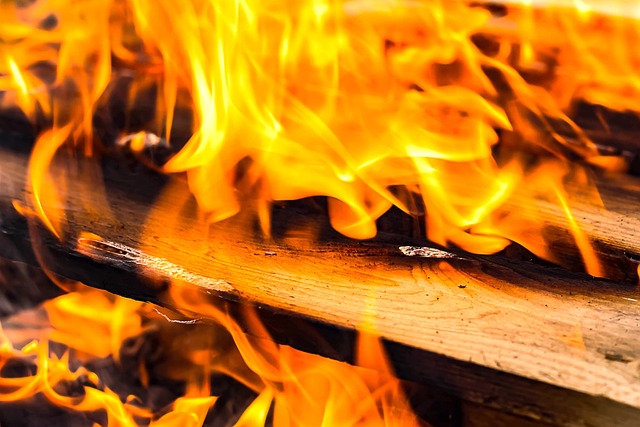
In Texas, including Houston, buying and selling fire-damaged homes comes with unique legal considerations. While the state has specific laws governing the sale of such properties, it’s crucial to understand that a fire-damaged house in Houston can still be a lucrative investment opportunity. The first step for any real estate investor looking to purchase or sell a fire-damaged property is to consult a lawyer who specializes in real estate transactions and insurance law.
This legal consultation is essential to navigate the complex regulations surrounding the disclosure of damage, repairs, and potential environmental hazards. Texas has strict guidelines on what must be revealed during a property sale, particularly when it comes to significant alterations or damages like those caused by fires. A lawyer can ensure that all necessary paperwork is in order, protecting both the investor and the seller while facilitating a smooth transaction for the fire-damaged house in Houston.
Strategies for Evaluating the Potential Return on Investment (ROI) in Post-Fire Real Estate

After a fire, it might seem daunting to consider investing in real estate in Houston. However, savvy investors see potential where others fear risk. To evaluate the viability of purchasing and rehabilitating a fire-damaged property, start by assessing its location. Is it in an area with strong historical property value appreciation? Are there active neighborhood associations working towards revitalization? A solid location can offset some of the challenges posed by fire damage.
Next, thoroughly inspect the property to understand the extent of damage and necessary repairs. Can structural elements be saved or will the house require a complete rebuild? Consider engaging professionals who specialize in fire-damaged properties for an accurate assessment. Remember that a thorough understanding of local reconstruction codes and building permits required for rehabilitation is crucial. Finally, examine historical data on comparable properties that have been restored after fires to gauge potential returns. The market’s response to previous fire recoveries can offer valuable insights into the potential return on investment (ROI) of purchasing and rehabilitating a fire-damaged house in Houston. Keywords like “can you sell a fire damaged house Houston” reflect both the challenges and opportunities inherent in this niche real estate segment.
Finding Reliable Resources and Support Networks for Houston Real Estate Investors

Navigating the real estate market in Houston requires a strong support network for investors. Building connections within the local community is invaluable, offering insights into upcoming developments and potential investment opportunities. Local investor groups, meetups, and online forums provide a platform to exchange ideas, share knowledge, and collaborate. These networks can be particularly beneficial when dealing with unique scenarios like investing in fire-damaged properties in Houston. Many investors are unaware of the possibilities of rehabilitating and reselling such homes, but with the right resources, it’s an achievable goal.
Houston has a growing market for these distressed properties, as some buyers seek affordable options or the potential for renovation projects. Reliable resources include local real estate agents specializing in such transactions, contractors experienced in fire damage restoration, and legal professionals who can guide investors through any regulatory requirements when purchasing and rehabilitating these homes. These networks ensure that Houston’s real estate investors are well-equipped to navigate diverse markets, including the specific niche of selling fire-damaged houses.
Case Studies: Successful Stories of Investing in and Revitalizing Fire-Damaged Houses in Houston
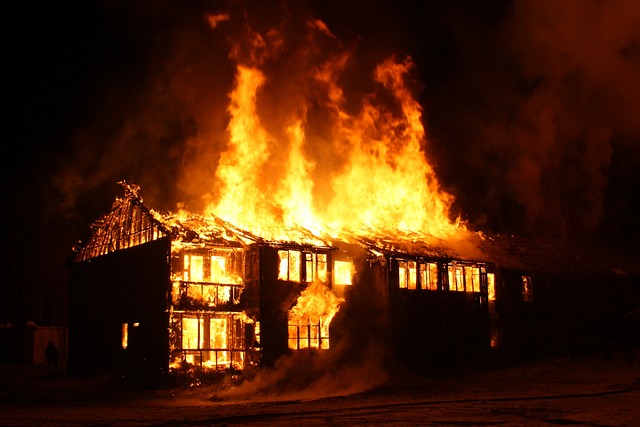
In Houston, the real estate market has seen its fair share of challenges, particularly in areas hit by fires. However, some investors have turned these setbacks into successful opportunities. Case studies reveal that revitalizing fire-damaged houses can not only restore communities but also yield significant returns. By focusing on rehabilitation and renewal, these investors have successfully flipped properties, increasing their value by substantial margins.
The process involves careful assessment of damage, obtaining necessary repairs and renovations, and strategically marketing the restored homes to buyers seeking affordable yet quality housing options. This approach has proven effective in revitalizing neighborhoods and providing a fresh start for residents while also offering attractive returns for investors interested in the Houston market. With proper execution, can you sell a fire damaged house in Houston? Absolutely, as these success stories illustrate.
Houston’s real estate landscape presents a unique blend of challenges and opportunities, particularly when it comes to fire-damaged properties. As this article has explored, understanding the market dynamics, navigating legal considerations, and employing strategic ROI evaluation are key to success for investors. By leveraging reliable resources and learning from case studies, aspiring Houston real estate investors can confidently navigate the post-fire landscape and contribute to revitalizing communities through their investment decisions. Whether interested in fixing up a fire-damaged home or investing in the broader Houston market, the insights provided here offer a solid foundation for informed decision-making. And remember, when it comes to selling a fire damaged house in Houston, knowledge is power.
